- Home
- Sherwood Smith
Time of Daughters I Page 7
Time of Daughters I Read online
Page 7
But there was a physical cost. Danet, very aware of the importance of her position—and of the jarlan’s eye her way when she lumbered through on inspection—suppressed her growing physical discomforts.
No one wanted to hear about them, Danet knew. When she saw Arrow it was because he needed a safe place to pace back and forth, swearing at the slowness of his game captains, at Lanrid who was never to be found when there was grunt work to be done, at the sun, the heat, the signal flags when they were dust-caked and couldn’t be seen unless swung mightily, and finally at the weather, which seemed to get hotter as the game days approached. Meanwhile Lanrid was off in a distant field drilling his handpicked lancers—what used to be called dragoon lancers—having left the Riders and castle guards he didn’t want to Arrow.
The mass of Senelaec, Sindan-An, Tlen and Tlennen riders arrived at the great campground the day before the games were to begin.
Wolf rode off with representatives of the other two clans to report in at the row of big pavilions visible across stubbly fields still smelling of hay, and came back to report that they had been assigned a camp at the rump-end of the field, but at least near the river.
Calamity slipped away to establish her girls farther up the river, well hidden by clumps of willow and thickets of gorse.
They waited until Wolf showed up late, as in the distance the rolling, galloping rhythm of drums ran counterpoint to singing. “Here’s some food from the banquet,” Wolf said. “We had to wait until the end to grab it.”
The girls sat along the river’s edge to eat. When they were done, Calamity said, “Get some rest. Tomorrow is the ride and shoot.”
EIGHT
When the sun rose to a sky filled with low, patchy clouds, the wargame competitors discovered that the Olavayir people had labored by torchlight before dawn to set up targets every twenty-five paces in a long line parallel to the great tents.
They’d placed the biggest tent—a pavilion that had been constructed with canvas walls within, creating little rooms that were hot and stuffy by afternoon—in the central position. The Olavayir family, including the women of rank, rotated in and out of this pavilion as duties permitted. At the side of the opening, under a shade canopy, the herald in charge of scorekeeping sat with his three scribes—two with slates and chalk, and one with paper and pen to record the final numbers.
Ranor-Jarlan, pleased with Danet’s excellent work, had made certain that Arrow’s wife would be among the first to get to watch the day’s competitions. The jarlan’s runners had reported that the welcoming meal had gone perfectly, and that everything else related to comestibles flowed equally smoothly. Danet had earned her ease.
The jarlan also remembered what it was like to be hauling a boulder around in one’s belly that last month, especially at the height of summer, and so one of those little tent chambers had been filled with blankets for Danet to retreat to if she needed to lie down.
So Danet was at the pavilion, sitting on a mat under the extended flap that warded the sun, as the various teams each brought out ridings for the group and individual ride and shoot competition. She listened with mild interest to the gossip, hoping she’d get to see Brother among the nine chosen for his wing. He’d always been a decent shot, better than she and Hliss, who were competent, which was all Mother had required of them, their time being better spent on what she deemed more useful tasks.
Most of the gossip was about Knuckles, the Marlovayir heir, who was rumored to be the best—a rumor Danet gathered this selfsame Knuckles was doing his best to propagate.
The most intense interest was in the canter and shoot from fifty paces distance. It was difficult to see past the dust, as team after team rode hard down the dun-colored ground and shot, every arrow that hit the red causing a cheer to go up, always loudest from the wing the shooters belonged to.
Arrow and Lanrid, as rival commanders, had each picked teams of their best shooters. Danet was glad to see that Arrow’s team got a respectable number of reds, though some shots barely touched the painted circle. They were edged out on the third run by Lanrid’s team’s better scores.
The Marlovayirs rode after, and Danet easily picked out Knuckles by the fact that he rode first, a big, square blond with a huge grin, easy and assured in the way he handled his mount, but with unnecessary swagger in the way he turned his horse fast, and kneed the animal straight into gallop. He was good, but on his second run, his horse was clearly overheated and faltered in rhythm, and Knuckles’ aim suffered for it. Still good, but five out of eighteen reds.
His third run, he fell back to a canter, but his horse was blown from the heat, causing him to miss the last two shots. His team altogether was ahead, but he was tied for first with shooters from the Lindeth garrison and Yvanavayir.
Danet was nibbling at bread and cheese when the Senelaec team rode up. Wolf’s most trusted cousins, ostensibly the shooters, had mixed into the back of the watching crowd as Calamity and her girls took their place—and at a perfect canter, horses nose to tail, Calamity led the way.
On the first run, she hit the red half the time, missing by a finger’s breadth the rest, as the dust by then was choking, the sun at its worst glare, and she was painfully aware of all those watching eyes. Every nerve alive, she found her rhythm, the girls following her lead. Her second run was better, and on the last, she hit every single red. Two bordering the edge, but the judges allowed them, causing a shout to shiver the air.
Danet found herself on her knees, cheering as well. These riders were no more than teens! Even Mother admitted that the Senelaecs—closely related to the Sindans—bred and trained the fastest horses, and they were among the best scouts, but Arrow had claimed that their shooting was nothing special.
The jarl told his first runner to signal them in to be congratulated, but they didn't seem to see the limp flag in the stifling air. They rode off, and as the next group had already gathered at the far end, ready for their try, the jarl gave up. He’d compliment them when they came up for their banner—he had little doubt that their score would remain the best.
And so it was.
Danet found herself curious enough to wait until the competition was over to see the Senelaec winners up close.
But as the sun began dropping westward, and the captains of the winning teams came forward to receive their flags, the one who came for the Senelaecs was a tall, dashing fellow with curly dark hair—definitely not the skinny, blond young teen who had shot so well.
Danet looked at him doubtfully. Surely she would have noticed a fine-looking boy like this one among the shooters.
She found Arrow next to her. “That’s Wolf Senelaec,” he said, then lowered his voice. “His wife left him. The Idegan wing in my army say they don’t know why, though they’re all related in some wise to the Arvandais family. We’re related, if you go back a hundred years. But she didn’t even stop here on her way north.”
Danet remembered something about the tangle of relationships, Cama One-Eye having had two families, one with the famous Ndara Arveas-Andahi, and the other through Starand Olavayir.
She watched Wolf Senelaec walk away as she said, “Was he that terrible a husband?”
“No one knows what happened or why. But Da says that’s how feuds get started,” Arrow replied. “I’ll wager a horse that’s why none of main branch of the Arvandais clan sent anyone down the Pass, and all that about farm problems is a load of horse apples.”
Danet wondered if Wolf was another Lanrid, pretty on the outside, but trouble on the inside.
For the Senelaec girls, the high point of the entire experience was that first day. Calamity deeply relished the delight of the sun at her back, a perfect horse under her, and the bow she knew better than her own heartbeat in her hands.
She thrilled with incandescent pleasure at hitting the red every time on the third run. And as the girls rode away, she grinned to see Knuckles Marlovayir peering at them under his hand, looking fierce.
But when it was over,
it was over. The girls were left to enjoy their win vicariously, for Wolf and the boys got the banner and the hails from other gamers.
And on the following day, the exhilaration began to ebb fast as first, a thunderstorm pounded through, and second, the individual competitions began.
These would go on for another three days, when the wargame would start. Wolf had warned her that it was likeliest nothing much but riding around would occur the first two days of that. It was always the last day that saw actual action.
At first Calamity and the girls enjoyed passing among the gamers as they listened to the way boys talked when among themselves. But this novelty wore off very fast—you can only listen to so much strut—leaving a long stretch of days to endure, eating their trail bread and either hiding along the river or passing among the crowd to watch the sword, double-stick, unarmed combat, and distance shooting competitions.
The only pleasure for Calamity was in sneaking over to watch Wolf doing the sword dance, relishing the tight fit of his coat that showed off his body, the swing of his hair and coat skirts whipping back and forth, the height of his leaps, and the sparks that he always raised when he clashed swords.
It was little enough compensation for the interminable drag of the sun across the sky, baking them mercilessly as they waited through the long, long wargame.
Wolf sent a scout to Calamity and Fuss when he had a chance, but they couldn’t even find Knuckles and his followers the first day. The second day, the scouts found them, but apparently Lanrid kept them in reserve, preferring to use his favored lancers in various charges; the girls heard the thrilling trumpet calls on the air.
By the day the big wargame was finally nearing its end, the girls were more than ready for it to be over.
“Listen,” Calamity said on the last morning, as they crawled out of their bedrolls. “Pack up. As soon as we’re done with the Marlovayirs, or it ends, whichever comes first, we’re heading out. We’re not going to wait for the farewell banquet—we can’t risk anyone seeing us up close. Wolf and the rest can catch up or not.”
No one disagreed. They were all thoroughly tired of camp living by then, bathing in the low, muddy river, and drinking from their single magic-purified pail.
Calamity stood by, watching Fuss’s neat, quick fingers as she rolled her clothes up for the saddlebag.
Mid-morning, Yipyip himself galloped to their camp and yelled, “They’re using Knuckles to flank our side, and attack from behind while Lanrid runs a last charge.” He pointed. “They’re running along that ridge above the river bend, keeping behind those trees.”
The girls mounted up, saddlebags already packed. They proceeded cautiously through the dust and noise, horse plops everywhere in the churned-up ground. As the horns blared in the distance, they occasionally saw someone or other galloping by with signal flags, but they paid no attention to those. They weren’t the only ones; as she shadowed the Marlovayirs, Calamity was aware of parties slinking back to break camp, eyes turned toward the horizon, where thunderclouds built in slow tumble over the hills.
The closest the girls came to the main conflict was by accident, when they followed their quarry through a massive dun-colored cloud of dust to hear Landrid Olavayir screaming at ragged lines to follow his front line.
The girls trotted briskly away at what turned out to be a perfect oblique angle, flanking the confused Marlovayirs. Both parties cleared the last of Lanrid’s army and approached the northern edge of Arrow’s. When the boys began their run at Arrow’s gamers, Calamity raised her hand, and the girls strung their bows, then pulled out the clumsy jelly-bag arrows used on these games, along with chalked wooden swords. The bags stung hard on impact, but more importantly they left sticky, bright-dyed evidence of kill shots—which meant “dead” combatants were out of the game, no matter what they claimed to the contrary.
One by one the girls on their fresh horses streamed by the Marlovayirs, close enough to rile the boys’ tired mounts. When the girls drew abreast of the Marlovayir line, they each shot their target, Fuss and Calamity both nailing the hapless Knuckles, one in the shoulder and one in the butt when he turned and half-rose in the saddle to protest.
The Marlovayirs’ targets promptly started screaming that the sneak attackers were cheating, to come back and fight as they waved their wooden swords, but the girls faded back into the dust and rode away.
At last they could start for home! Then the two girls serving as outriders pulled up, looking troubled. “Where’s south?” Pip, Calamity’s teenage cousin, asked.
The dust hung motionless in the air the way it does when thunder is coming, and the sun was completely hidden. They couldn’t see mountains or shadows to orient on. Fuss shouted, “Find the three Nevree hills, and use those as landmarks.”
Pip, the youngest of Calamity’s party, was partnered with Calamity’s runner Ndara as scouts. They took off, the others following more slowly to allow their animals to cool.
Calamity finally spotted the Olavayir pavilions to the left. Much too close. Fuss and Calamity exchanged glances, and Calamity was going to ride ahead to get Pip and Ndara to skirt the tents as well as the castle when the two came bolting back, Ndara almost as pale as her hair. She pulled up before Fuss and Calamity, saying breathlessly, “We heard yelling for help so we went to look. Arrow’s wife is alone except for a runner, who doesn’t know anything, and I think she’s about to give birth.”
Fuss said soberly, “We can’t leave her alone.”
“But we can’t ride for her castle—not in these coats and our hair up like this. If they see us close up, they’ll know.”
Fuss looked back and forth, then said slowly, as she shrugged out of her grimy coat, “Let’s make braids as we ride for the pavilion. And we all have our robes in our saddlebags. We’ll pull them over our shirts.”
Danet was far too distraught to ask where these strange girls had come from. More uncomfortable than she had ever been, she had gone into one of the inner rooms in the pavilion to rest as her lower back and hips burned with intermittent pain. Without noticing her absence, the overheated, exhausted servants and runners had begun hauling things back to the castle, for they still had the last banquet to set up.
The building rhythm of aches abruptly shifted to the urgency of sharp pain wringing through her, and Danet sat up gasping. Tesar, left behind to fold ground covers and stack cushions, turned around, staring with stark eyes.
When water gushed from under Danet’s robe, and Danet shrilled, “Get help!” Tesar panicked and ran for her horse to gallop to the castle.
Danet, alone, wailed with anguish—and then, miraculously, a pair of strange girls appeared out of nowhere and took over. Danet needed hands to hold her, and hands to catch the babe, and to knife the cord.
By the time Tesar got back with the jarlan and a stream of castle women, everything was done except cleaning up the mess, and Danet was curled up in the dusty tent with her little boy.
Calamity and Fuss met one another’s gazes, and while the Olavayirs crowded around, everyone talking, they backed out and ran for their horses, kept at a prudent distance by the rest of the girls.
They turned their noses toward home as thunder broke overhead, drenching human and animal within three gasping breaths.
NINE
Rain hammered the dusty plain, now mostly empty except for a few stragglers struggling to fold wind-whipped tent canvas, and the Olavayir servants hauling goods and equipment back toward the castle. At the castle, dust ran off the stone and poured into the streets.
Lanrid Olavayir had left the servants and runners to deal with the detritus of the wargame, and to set up the formal banquet in the parade ground court.
In his view, the commander—especially the winning commander—was free to celebrate in his own way. He was not obliged to sit in that steaming courtyard eating hot food with Arrow sulking, and hundreds of fools too stupid to see a signal flag.
He, his younger brother Sinna, and their loyal cousins—al
l expecting promotion from captains of a riding of nine to captains of a flight or even a wing, now that Lanrid was officially a commander—rode back to the castle, splashing through new puddles. After the unrelenting heat, the sting of hard rain was exhilarating.
Sinna ululated the fox yip on a high, musical note until the rain and thunder drowned him out. When they galloped into the residence courtyard and scattered stable hands left and right, Lanrid held out an arm to his brother, who halted obediently. “I’m not going to say anything, but that win was not the smashing defeat I wanted,” Lanrid said in an undertone.
Sinna, in his secret heart, was no fighter. But his brother had trained him to appear to be one, and he would do anything for Lanrid. “No?”
“The charges. The only ones who did well were ours. The rest may as well not have been there. I saw it, Sinna, that drill is everything. We’re going to drill in charges and signals before we go on our raid.”
Sinna’s heart sank, for in his opinion they had already drilled in those things endlessly. But he loyally jerked his palm up in assent, and Lanrid rewarded him with a grin and a thump on the shoulder. “Spread the word. Dawn, tomorrow. Behind West Hill, in case that shit Arrow gets the same idea. I don’t want him watching us.”
Sinna assented with a flip of his palm, and they started after the others, Lanrid pausing when he spotted his spy among the castle staff lurking inside the stable tack room.
“Go on in,” Lanrid said to Sinna. “Get something to eat after you tell the others, and order something for me, right?”
Sinna was going to point out that the banquet was at that moment being set up, but shrugged and splashed off, singing a victory song, his high, clear, joyous voice joined by others who sounded like crows by comparison.

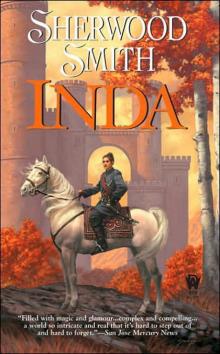 Inda
Inda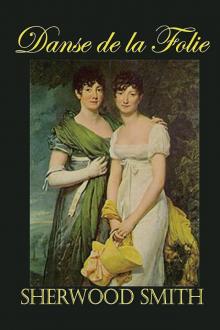 Danse De La Folie
Danse De La Folie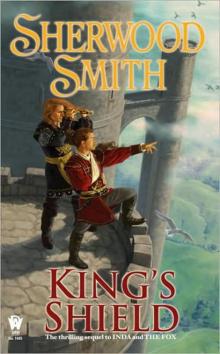 King's Shield
King's Shield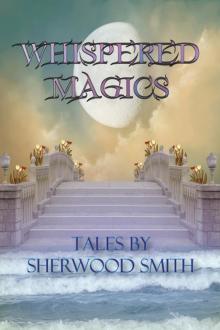 Whispered Magics
Whispered Magics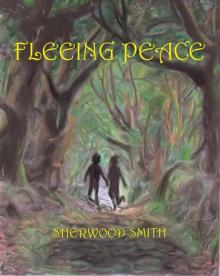 Fleeing Peace
Fleeing Peace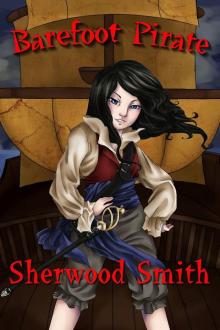 Barefoot Pirate
Barefoot Pirate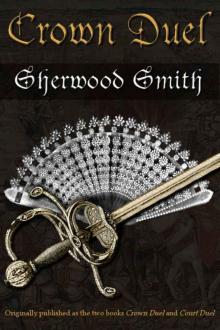 Crown Duel
Crown Duel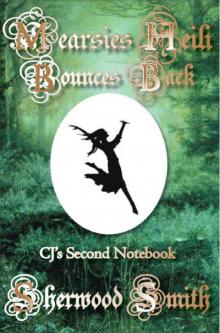 Mearsies Heili Bounces Back
Mearsies Heili Bounces Back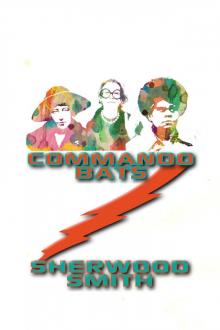 Commando Bats
Commando Bats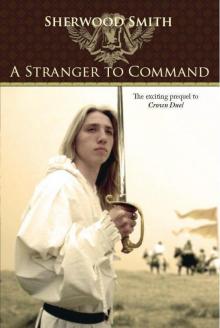 A Stranger to Command
A Stranger to Command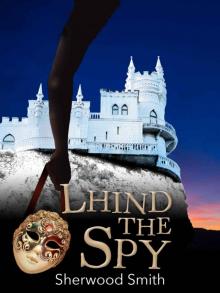 Lhind the Spy
Lhind the Spy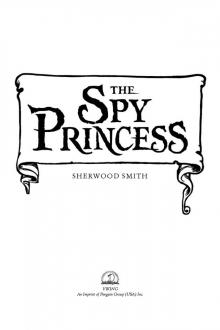 The Spy Princess
The Spy Princess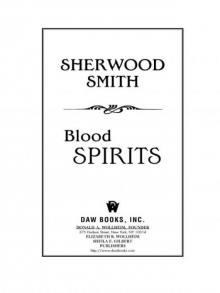 Blood Spirits
Blood Spirits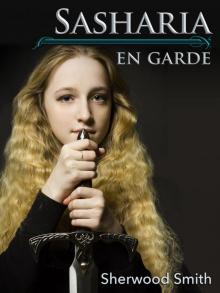 Sasharia en Garde
Sasharia en Garde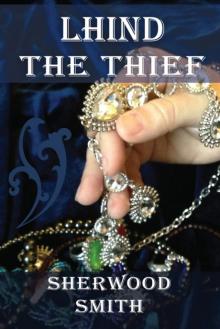 Lhind the Thief
Lhind the Thief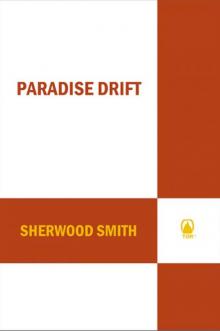 Paradise Drift
Paradise Drift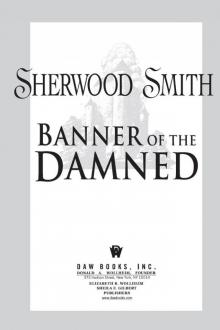 Banner of the Damned
Banner of the Damned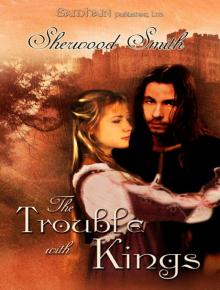 The Trouble With Kings
The Trouble With Kings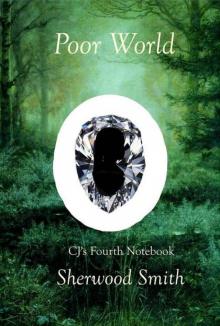 Poor World
Poor World Treason's Shore
Treason's Shore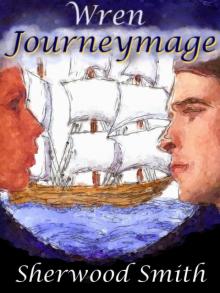 Wren Journeymage
Wren Journeymage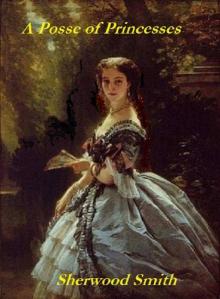 A Posse of Princesses
A Posse of Princesses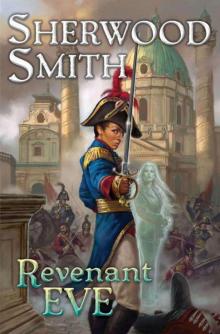 Revenant Eve
Revenant Eve Once a Princess
Once a Princess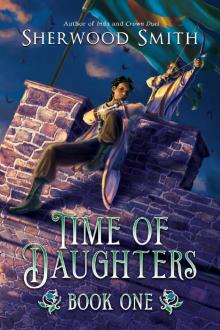 Time of Daughters I
Time of Daughters I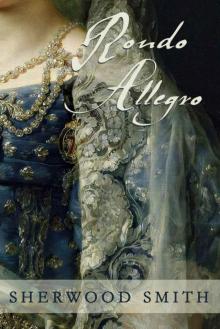 Rondo Allegro
Rondo Allegro Coronets and Steel
Coronets and Steel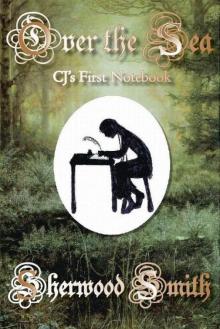 Over the Sea
Over the Sea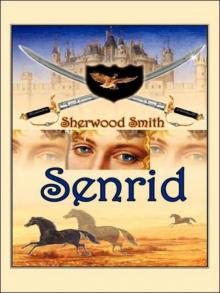 Senrid
Senrid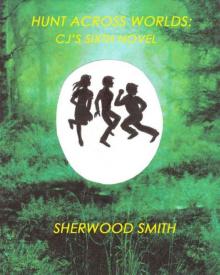 Hunt Across Worlds
Hunt Across Worlds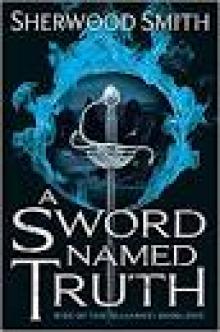 A Sword Named Truth
A Sword Named Truth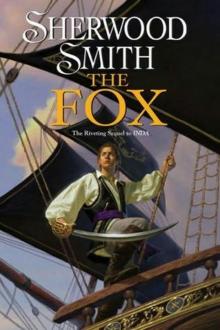 The Fox
The Fox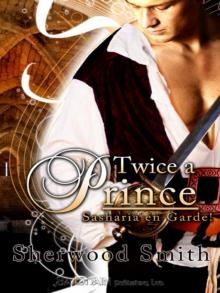 Twice a Prince
Twice a Prince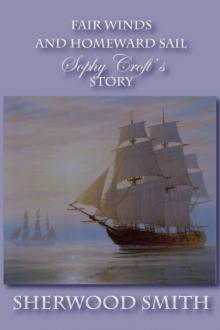 Fair Winds and Homeward Sail: Sophy Croft's Story
Fair Winds and Homeward Sail: Sophy Croft's Story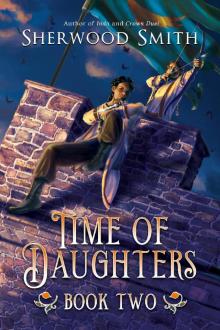 Time of Daughters II
Time of Daughters II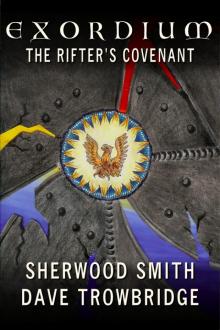 The Rifter's Covenant
The Rifter's Covenant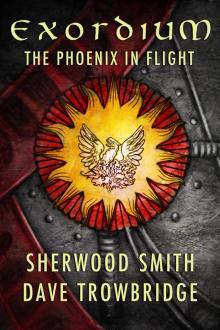 The Phoenix in Flight
The Phoenix in Flight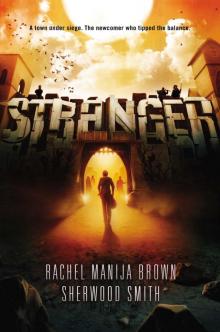 Stranger
Stranger The Thrones of Kronos
The Thrones of Kronos A Prison Unsought
A Prison Unsought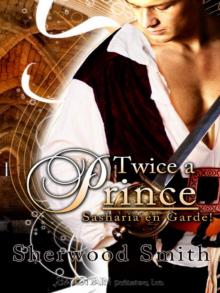 Twice a Prince: Sasharia En Garde Book 2
Twice a Prince: Sasharia En Garde Book 2